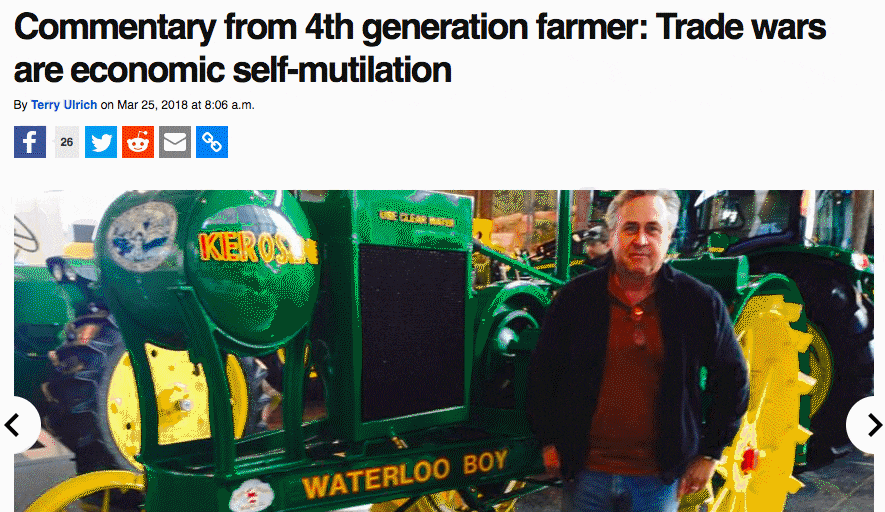ICYM This This or This on Cramer’s Terrible Trade War
(BISMARCK, ND) – On the day of his town hall on trade, where Congressman Cramer was set to meet with farmers and manufacturers after dismissing their concerns as “hysteria,” he was met with an avalanche of editorials and more bad news about the disastrous effects of his trade war.
IN CASE YOU MISSED THIS

OR THIS
AgWeek:
- Almost two-thirds of firms surveyed for the Mid-America Business Conditions Index reported that recent tariffs or trade restrictions have had, or will have, a negative impact on their company. Similarly, 46.8 percent of supply managers indicated recent tariffs have increased the cost of buying from abroad.
- Farm exports commonly are targeted in retaliatory tariffs, as is happening in response to the Trump administration’s imposition of tariffs against other countries, [Ernie Goss, a Creighton economist] said. “They’re already seeing some negative fallout.”
- Impacts will worsen, including falling farm exports, if the dispute escalates. “If we don’t see some resolution, these impacts are going to climb,” Goss said. The Trump administration has pledged $12 billion in aid to soften the blow to farmers, but that will be a small Band-Aid that won’t “solve the problem,” he said.
- “It’s not sufficient to address the losses that will accumulate if we continue to go down this path,” Goss said. “Farmers survive and do better under free and fair trade.”
OR IN CASE YOU MISSED THAT
Walsh County Record Editorial:
- North Dakota, and specifically Grafton, are highly dependent on the success of area farmers. […] Soybean prices have dropped almost 20 percent since April when China announced a 25 percent tariff on U.S. soybeans. That means farmers are getting lower prices for goods and are not making enough to cover bills… When government gets involved in the market at that degree, it is disruptive and the agriculture market may never recover.
- The emergency aid program is pointedly timed to possibly help Republicans in midterm elections. Many of the states that supported Trump in the 2016 president election, like Iowa, Nebraska, Kansas, Texas, North Dakota and South Dakota, have been impacted by the punitive tariffs from China and other countries.
OR IN CASE YOU MISSED THOSE
AgWeek Editorial:
- Agriculture has become collateral damage for the ongoing trade war, which some experts predict could last another year.
- No one wins in a trade war, even when you try to fix it with a bandage. So, the $12-billion trade compensation package falls short of helping farmers at a time when they need markets and higher commodity prices after five years of a depressed farm economy.
- Many in agriculture have labored for decades to develop and expand international markets for their products. It has taken millions of dollars and countless hours to build relationships that have led to U.S. sales… The trade war has dismantled those years of work in just a few weeks. What dollar amount can be put on those future losses?
- A $12 billion bandage for a wound of his making is still a bandage. Now, with congressional elections nearing, Trump wants us to focus on the bandage. Far better, we think, if he would focus on the wound.
- Many farmers have questioned how market losses can be assessed equitably since some farmers sold crop ahead while others didn’t. They also are questioning if these payments will be adequate if the soybean market continues to stay depressed.
- Soybean farmers aren’t the only ones hurt by the trade war. It has impacted the dairy, cotton, corn, wheat, sorghum and pork sectors.
- While a trade compensation package on the surface may seem like a positive move by the Trump administration, it will be too little too late for many farmers who are financially strapped after five years of low commodity prices. These farmers will become casualties of the trade war and won’t be around to see the great outcome Trump is promising.
OR IN CASE YOU MISSED ALL OF THAT

###

